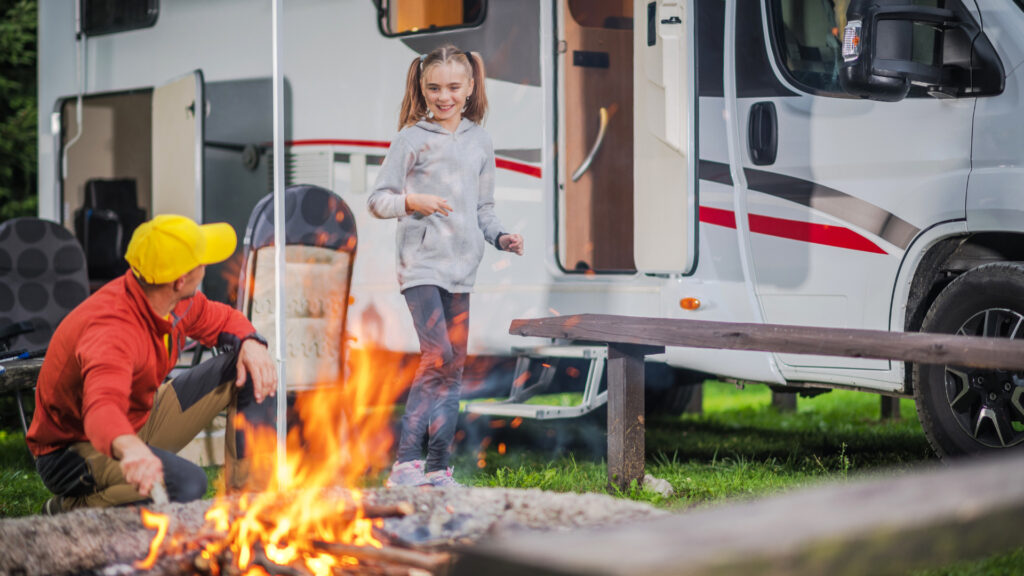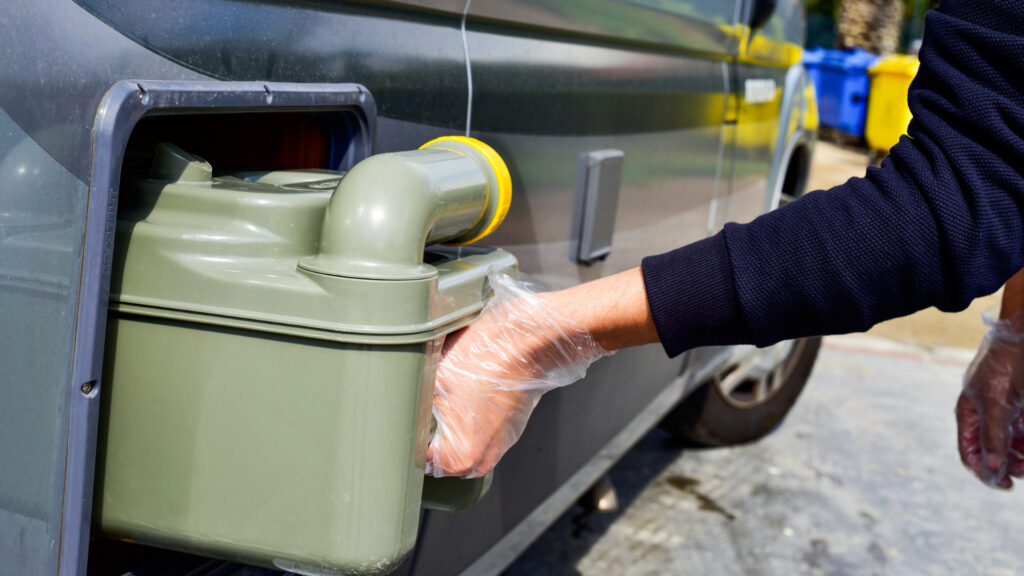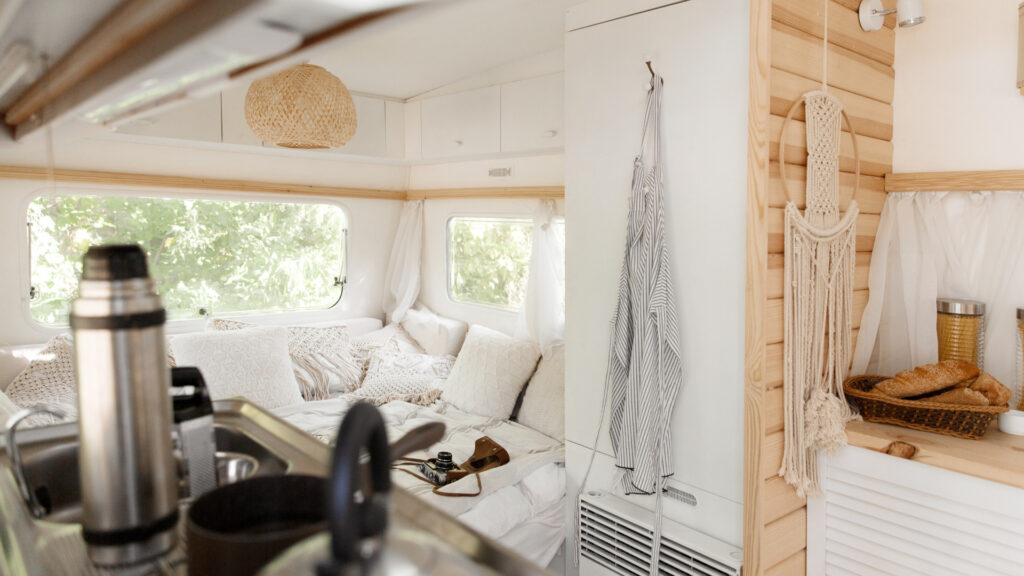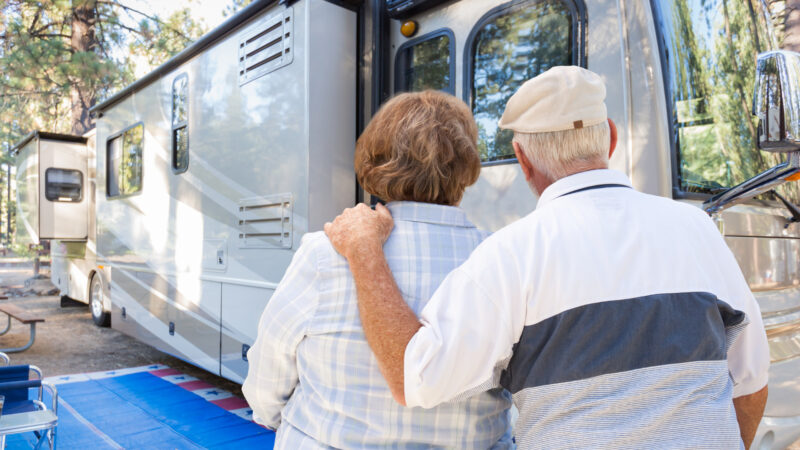Table of Contents Show
Whether you’re a newbie or a seasoned veteran, learning from others is an important skill to possess.
You’re not doing yourself any favors or making friends if you have a “know-it-all” attitude. You never know when someone will teach you something you didn’t know, or that’ll make your life easier.
We recently stumbled across an online discussion where an RVer asked for the best advice others had received. There were a few consistent themes and repeated words of wisdom.
Today, we’re sharing some of those golden nuggets of advice with you so you can learn too. Let’s get started!
RVer Asks Facebook for Their Best Advice on Full-Time RV Living
A Full-Time RV living group member asked the more than 150 thousand members, “What is the best advice someone has ever given you regarding full-time RV living?” The question generated almost 500 comments, most of which were helpful.
The post was a great opportunity for everyone to learn from each other and comment back and forth.
In a rare form for Facebook, the comments were generally civilized and provided solid advice for anyone currently on the road or hoping to in the future.

What Advice Did RVers Give Her?
While there were a tremendous amount of comments, there were several duplicates. Additionally, some were so good that they stood out from the rest. Let’s look at some of the best pieces of wisdom in the post!
It’s Not Cheap
One common misconception about RVing is that it’s always cheap. While it does have the potential to help you save money, that’s not always the case.
Reservations at campgrounds and RV parks can add up quickly. If you don’t like staying in one place long, expect to use a lot of fuel.
Additionally, things will break, and you’ll want to make upgrades to make your RV more comfortable and capable. You can save money by doing the work yourself, but some require an experienced professional.
Shop rates for these professionals can cost over $150 per hour, excluding the price of any parts you might need.
Trust us; do yourself a favor and have a healthy amount in savings as an emergency fund. RV life can be unpredictable, and having a substantial emergency fund can save the day.
You don’t want to end up in a difficult situation and have no money to cover any expenses to get you back on the road.
Don’t Sell Your House
With home values going through the roof in many places, selling your home to fund an RVing adventure may be tempting.
Many full-time RVers use the profit from the sale of their home to purchase an RV, a tow vehicle, or create their emergency fund. Sadly, this often comes back to bite many ambitious folks.
You may want to travel and see the country for the rest of your life and intend to do so. However, a typical full-time RVer spends anywhere from a few months to a few years traveling in their RV before settling back into a more typical home setting.
Transitioning back into homeownership can be incredibly difficult, especially in the current market conditions.
Instead of selling your house, consider becoming a landlord and turning it into a rental while on the road.
Doing so gives you a place to call home when you’re done traveling and can generate some income to help fund your adventures.
Read More: Still not convinced you shouldn’t sell your home before hitting the road? Here are more reasons Why RVers Should Have a Home Base
Keep Your Black Tank Closed
One mistake that’s easy to make, especially for new RVers, is leaving your black tank valves open when connected to full hookups.
Leaving your waste valves open when connected to a sewer connection is not a good idea. Whether it’s sewer bugs or odors, you don’t want them finding their way up into your camper.
Additionally, keeping your black tank closed helps maintain the solid-to-liquid ratio in your tank. Solid waste and toilet paper need the assistance of liquids in your tank to help with dumping.
If not, you’ll likely experience clogs and difficulties frequently when emptying your tank. This also lets you avoid the dreaded “Poop Pyramid” that haunts many RVers.
The RV poop pyramid results from liquids draining out of a black tank from an open sewer valve. A pile of solids gathers underneath the toilet at the bottom of the black tank and can stay there for weeks or months.
The waste can harden and create a nasty situation with no water or liquids in the tank to flush them out. It can be extremely challenging and may require a professional to fix it.

Never Get Confident When Towing
Towing or navigating any size RV can be challenging and requires the driver’s entire focus and attention.
Every driver should have a level of fear and concern when towing. Doing so helps them to take the task seriously, which increases safety for everyone in the vehicle and on the road.
Unfortunately, we see many drivers that develop overconfidence in their skills or their vehicle. This mentality can be extremely dangerous and lead to mistakes.
Confidence can cause you to take safety inspections and other important steps seriously, resulting in costly and even deadly mistakes.
Keep in Mind: So what should you expect to spend as a full-time RVer? Take a look at what these 7 Budgets from Full-Time RVers
You Need Less Than You Think
Moving into an RV requires you to downsize your possessions significantly.
Whether you hold a yard sale or put them in storage, you won’t have room for them in an RV. Many end up surprising themselves with how little they need to enjoy the lifestyle.
While a large purge of items before hitting the road is common, so is having additional purges once on the road. You quickly get tired of hauling unused belongings during your travels. Don’t be surprised if you regularly look for spots to donate more things while on the road.

Slow Down; You’re Not on Vacation
Adjusting to the slower pace of RVing can be challenging. It’s easy to treat RV life like a sprint instead of a marathon.
The lifestyle is not a vacation, and your body can’t handle constantly being on the go. It’s important to build in time to rest, especially if you want to spend years adventuring.
Unfortunately, you won’t have the time or money to see and do every possible activity available in an area. You may have to plan a future trip to get the full experience.
We suggest keeping a running list of places to visit and things to do to help you plan your future travels.
Propane Only Runs Out at Night
Heating is one of the most common uses for propane in an RV. With chillier temperatures at night, a propane furnace typically runs more often during the overnight hours than during the day.
As a result, if you run out of propane, waking up to a chilly RV will be your first sign.
We highly encourage you to have a backup tank to save yourself from freezing in your camper. Even if your RV automatically switches to a new tank when it runs out, open one at a time. This lets you know when you’ve emptied a tank and need to get it refilled.
If you follow this advice, all you’ll have to do in the middle of the night is close the empty tank and open the new one. If all goes as planned, you can restore heat to your rig within minutes. You’ll have a cozy RV again before you know it!
Is Full-Time RV Living Worth It?
Full-time RV living can be an incredible experience. However, the lifestyle can be quite an adjustment from a traditional way of living. Full-time RV living can be worth it if you listen to and learn from others.
However, you might struggle to enjoy RV life if you have a negative or know-it-all attitude.
Full-time RV living can stretch and grow you as an individual and your relationships with those traveling with you. Learning to be flexible and to work as a team are essential skills that will make or break your experience. The lifestyle will likely be worth it if you can do these things.
What’s the best RVing advice you’ve ever received?






